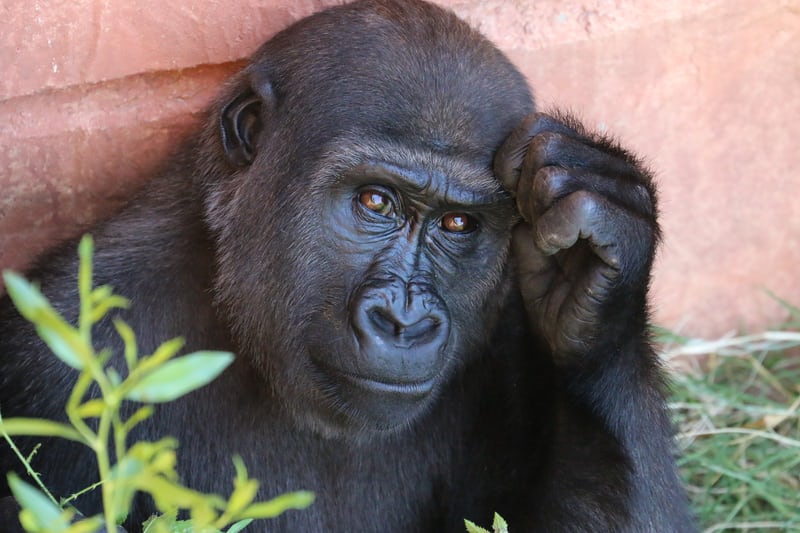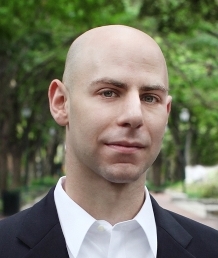
“Think Again is a must-read… In an increasingly divided world, the lessons in this book are more important than ever.” –Bill and Melinda Gates
Think Again: The Power of Knowing What You Don’t Know is about the ability to rethink and unlearn. In our daily lives, we tend to favor the comfort of conviction over the discomfort of doubt. We prefer to listen to opinions that confirm our own and that make us feel good, instead of ideas that challenge us. We often treat disagreement as a threat rather than as an opportunity to learn. We keep surrounding ourselves with people who agree with our beliefs and reasoning, instead than actively looking for those who may challenge our thinking process and ideas. The consequence of this behavior is that our beliefs become rigid and impede our progress. Being bright doesn’t solve the problem. On the contrary, there’s evidence that being good thinkers can make us worse at rethinking.
When people reflect on what it takes to be mentally fit, the first idea that comes to mind is usually intelligence. The smarter you are, the more complex problems you can solve—and the faster you can solve them. Intelligence is traditionally viewed as the ability to think and learn. Yet in a turbulent world, there’s another set of cognitive skills that might matter more: the ability to rethink and unlearn.“
TOP 42 QUOTES FROM THINK AGAIN BOOK BY ADAM GRANT
“Questioning ourselves makes the world more unpredictable. It requires us to admit that the facts may have changed, that what was once right may now be wrong. Reconsidering something we believe deeply can threaten our identities, making it feel as if we’re losing part of ourselves.” – Adam Grant
“You can be confident in your ability to achieve a goal in the future while maintaining the humility to question whether you have the right tools in the present.” – Adam Grant
“Great thinkers don’t harbor doubts because they’re imposters. They maintain doubts because they know we’re all partially blind and they’re committed to improving their sight.” – Adam Grant
“In a heated argument, you can always stop and ask, ‘What evidence would change your mind?’ If the answer is ‘nothing,’ then there’s no point in continuing the debate.” – Adam Grant
“People gain humility when they reflect on how different circumstances could have led them to different beliefs.” – Adam Grant
“When we’re reading, listening, or watching, we can learn to recognize complexity as a signal of credibility.” – Adam Grant
“Rethinking liberates us to do more than update our knowledge and opinions—it’s a tool for leading a more fulfilling life.” – Adam Grant
We’re mental misers: we often prefer the ease of hanging on to old views over the difficulty of grappling with new ones. –– Adam Grant
Even our great governing document, the U.S. Constitution, allows for amendments. What if we were quicker to make amendments to our own mental constitutions? – Adam Grant
A hallmark of wisdom is knowing when it’s time to abandon some of your most treasured tools – and some of the most cherished parts of your identity. – Adam Grant
We live in a rapidly changing world, where we need to spend as much time rethinking as we do thinking. – Adam Grant
We need to question our beliefs more readily than ever before. This is not an easy task. As we sit with our beliefs, they tend to become more extreme and more entrenched. I’m still struggling to accept that Pluto may not be a planet. – Adam Grant
Vintage records, classic cars, and antique clocks might be valuable collectibles, but outdated facts are mental fossils that are best abandoned. – Adam Grant
The brighter you are, the harder it can be to see your own limitations. Being good at thinking can make you worse at rethinking. – Adam Grant

If we can’t learn to find occasional glee in discovering we were wrong, it will be awfully hard to get anything right. – Adam Grant
Every time we encounter new information, we have a choice. We can attach our opinions to our identities and stand our ground in the stubbornness of preaching and prosecuting. Or we can operate more like scientists, defining ourselves as people committed to the pursuit of truth – even if it means proving our own views wrong. – Adam Grant
We learn more from people who challenge our thought process than those who affirm our conclusions. Strong leaders engage their critics and make themselves stronger. Weak leaders silence their critics and make themselves weaker. – Adam Grant
Although I’m terrified of hurting other people’s feelings, when it comes to challenging their thoughts, I have no fear. In fact, when I argue with someone, it’s not a display of disrespect – it’s a sign of respect. It means I value their views enough to contest them. If their opinions didn’t matter to me, I wouldn’t bother. I know I have chemistry with someone when we find it delightful to prove each other wrong. – Adam Grant
What set great presidents apart was their intellectual curiosity and openness. They read widely and were as eager to learn about developments in biology, philosophy, architecture, and music as in domestic and foreign affairs. They were interested in hearing new views and revising their old ones. They saw many of their policies as experiments to run, not points to score. –– Adam Grant
If knowledge is power, knowing what we don’t know is wisdom. – Adam Grant
Who you are should be a question of what you value, not what you believe. –– Adam Grant
Changing your mind doesn’t make you a flip-flopper or a hypocrite. It means you were open to learning. – Adam Grant
When we’re trying to persuade people, we frequently take an adversarial approach. Instead of opening their minds, we effectively shut them down or rile them up. They play defense by putting up a shield, play offense by preaching their perspectives and prosecuting ours, or play politics by telling us what we want to hear without changing what they actually think. – Adam Grant
A good debate is not a war. It’s not even a tug-of-war, where you can drag your opponent to your side if you pull hard enough on the rope. It’s more like a dance that hasn’t been choreographed, negotiated with a partner who has a different set of steps in mind. If you try too hard to lead, your partner will resist. If you can adapt your moves to hers, and get her to do the same, you’re more likely to end up in rhythm. – Adam Grant
Many of our beliefs are cultural truisms: widely shared, but rarely questioned. If we take a closer look at them, we often discover that they rest on shaky foundations. – Adam Grant
Stereotypes don’t have the structural integrity of a carefully built ship. They’re more like a tower in the game of Jenga – teetering on a small number of blocks, with some key supports missing. To knock it over, sometimes all we need to do is give it a poke. The hope is that people will rise to the occasion and build new beliefs on a stronger foundation.– Adam Grant
At the turn of the last century, the great hope for the internet was that it would expose us to different views. But as the web welcomed a few billion fresh voices and vantage points into the conversation, it also became a weapon of misinformation and disinformation. – Adam Grant
In a productive conversation, people treat their feelings as a rough draft. Like art, emotions are works in progress. It rarely serves us well to frame our first sketch. As we gain perspective, we revise what we feel. Sometimes we even start over from scratch. – Adam Grant
Good teachers introduce new thoughts, but great teachers introduce new ways of thinking. – Adam Grant
Our convictions can lock us in prisons of our own making. The solution is not to decelerate our thinking – it’s to accelerate our rethinking. – Adam Grant
In driver’s training we were taught to identify our visual blind spots and eliminate them with the help of mirrors and sensors. In life, since our minds don’t come equipped with those tools, we need to learn to recognize our cognitive blind spots and revise our thinking accordingly. – Adam Grant
Arrogance leaves us blind to our weaknesses. Humility is a reflective lens: it helps us see them clearly. Confident humility is a corrective lens: it enables us to overcome those weaknesses. – Adam Grant
We’re all wrong more often than we’d like to admit, and the more we deny it, the deeper the hole we dig for ourselves. – Adam Grant
It’s a sign of wisdom to avoid believing every thought that enters your mind. It’s a mark of emotional intelligence to avoid internalizing every feeling that enters your heart. – Adam Grant
Focusing on results might be good for short-term performance, but it can be an obstacle to long-term learning. – Adam Grant
As we think and talk, we often slip into the mindsets of three different professions: preachers, prosecutors, and politicians. In each of these modes, we take on a particular identity and use a distinct set of tools. We go into preacher mode when our sacred beliefs are in jeopardy: we deliver sermons to protect and promote our ideals. We enter prosecutor mode when we recognize flaws in other people’s reasoning: we marshal arguments to prove them wrong and win our case. We shift into politician mode when we’re seeking to win over an audience: we campaign and lobby for the approval of our constituents…but there’s a fourth way to think, and that is the mode of a scientist. – Adam Grant
The most effective leaders score high in both confidence AND humility. Although they have faith in their strengths, they’re also keenly aware of their weaknesses. They know they need to recognize and transcend their limits if they want to push the limits of greatness.”“Two kinds of detachment are particularly useful [for clear thinking]: detaching your present from your past and detaching your opinions from your identity. –– Adam Grant
We all have notions of who we want to be and how we hope to lead our lives. They’re not limited to careers; from an early age, we develop ideas about where we’ll live, which school we’ll attend, what kind of person we’ll marry, and how many kids we’ll have. These images can inspire us to set bolder goals and guide us toward a path to achieve them. The danger of these plans is that they can give us tunnel vision, blinding us to alternative possibilities. We don’t know how time and circumstances will change what we want and even who we want to be, and locking our life GPS onto a single target can give us the right directions to the wrong destination. – Adam Grant
Choosing a career isn’t like finding a soul mate. It’s possible that your ideal job hasn’t even been invented yet. Old industries are changing, and new industries are emerging faster than ever before: it wasn’t that long ago that Google, Uber, and Instagram didn’t exist. Your future self doesn’t exist right now, either, and your interests might change over time. – Adam Grant
When we’re searching for happiness, we get too busy evaluating life to actually experience it. Instead of savoring our moments of joy, we ruminate about why our lives aren’t more joyful. – Adam Grant
It takes humility to reconsider our past commitments, doubt to question our present decisions, and curiosity to reimagine our future plans. What we discover along the way can free us from the shackles of our familiar surroundings and our former selves. Rethinking liberates us to do more than update our knowledge and opinions – it’s a tool for leading a more fulfilling life. – Adam Grant
Top 26 Quotes from “Originals: How Non-Conformists Move the World” by Adam M. Grant
Think Again: The Power of Knowing What You Don’t Know
When you form an opinion, ask yourself what would have to happen to prove it false. Then keep track of your views so you can see when you were right, when you were wrong, and how your thinking has evolved. — Adam Grant
In a heated argument with someone else, you can always stop and ask: ‘What evidence would change your mind?’ If the answer is ‘nothing,’ then there’s no point in continuing the debate. — Adam Grant
When we come across simplifying headlines, we can fight our tendency to accept binaries by asking what additional perspectives are missing between the extremes?…’How do you know?’ It’s a question we need to ask more often, both of ourselves and others. The power lies in its frankness. It’s nonjudgmental—a straightforward expression of doubt and curiosity that doesn’t put people on the defensive.”“Multiple experiments have shown that when experts express doubt, they become more persuasive. When someone knowledgeable admits uncertainty, it surprises people, and they end up paying more attention to the substance of their argument. – Adam Grant
ADAM M. GRANT

Adam M. Grant (born August 13, 1981) is an American psychologist and author who is currently a professor at the Wharton School of the University of Pennsylvania specializing in organizational psychology. He received academic tenure aged 28, making him the youngest tenured professor at the Wharton School. As an organizational psychologist, Adam Grant is an expert on opening other people’s minds–and our own. As the #1 New York Times bestselling author of Originals and Give and Take, one of his guiding principles is to argue like he’s right but listen like he’s wrong.
AMAZON: “Originals: How Non-Conformists Move the World” by Adam M. Grant
AMAZON: Think Again: The Power of Knowing What You Don’t Know by Adam M. Grant


